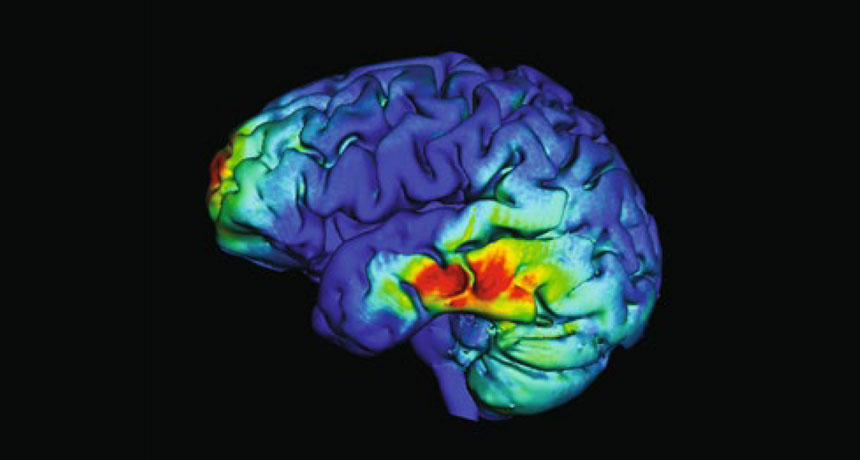When an older person’s brain waves are in sync, memory is boosted

Nudging an older person’s brain waves into sync temporarily boosts her recall powers. After about a half hour of precisely calibrated stimulation, people were better able to mentally juggle images seen on a screen, researchers report April 8 in Nature Neuroscience.
The results are the latest example of technology that aims to improve thinking by reshaping brain waves, an approach that may ultimately lead to noninvasive therapies for disorders including dementia, schizophrenia and autism.
In the new study, researchers attempted to synchronize brain wave patterns of 42 people who were 60 to 76 years old. External electrodes on a head cap delivered an alternating electric current designed to coordinate brain waves in two parts of the brain: the left prefrontal cortex and the left temporal cortex, both thought to be involved in working memory.
After 25 minutes of stimulation, these older people could better remember whether an image on a screen was the same as a previous version, or slightly changed. Their performance on the task rivaled that of people in their 20s, report neuroscientists Robert Reinhart and John Nguyen, both of Boston University. When 18 younger people’s brain waves were thrown out of whack with the device, their working memory suffered, other experiments revealed.
Brain stimulation benefits lasted at least 50 minutes. In a news conference with reporters on April 2, Reinhart said he suspects that the benefits last longer than that.
